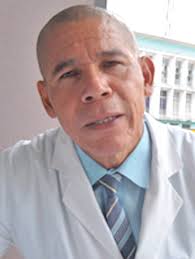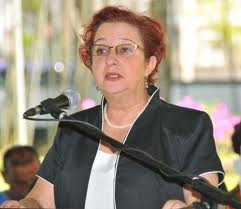
The National Assembly on Monday evening cleared a motion to add a new representative group to the structure of the Ethnic Relations Commission (ERC).
Both sides of the House voted to have the motion passed and praised the work of the appointive committee, headed by Dr George Norton. The new group will be referred to as Culture/Ethnic. Its three nominal representatives from the three main ethnic groups – Indian, African and Amerindian – will be made from a list of nominees of 183 non-governmental organisations (NGOs) working in ethnic and religious areas.
The three nominees will be elected to serve on the ERC, through the National Assembly. The ERC had comprised representatives from seven different constituencies – the three main religions (Hinduism, Islam and Christianity); labour; the private sector; youth; and women affairs organisations. The number of commissioners for the ERC will now move from seven to 10.
In presenting the motion to the House, Dr Norton said that the committee worked tirelessly to come to the conclusion that a new group should be added to the organisation’s structure. He said that committee was tasked with identifying, consulting and receiving nominations of appropriate bodies for the appointment of various members of the ERC. The committee was also tasked with recommending to the House, a consensual mechanism for the appointment of members of the ERC. The decision to create this new group was birthed from this.

People’s Progressive Party/Civic (PPP/C) frontbencher and Agriculture Minister, Dr Leslie Ramsammy, in his contribution, said the government supports the motion. Dr Ramsammy, who once served as a member of the appointive committee, said that he was pleased with the progress made, especially since it opened up avenues for more NGOs to participate.
However, he urged that the committee should work assiduously to meet with the organisations, to have their nominees and later have the new persons appointed.
PPP/C Chief Whip Gail Teixeira, herself a former committee member, said she supported the change in the structure of the ERC. Teixeira noted that while the inclusion of many organisations was a great step, the fact that the committee also sought to add credible NGOs was an even greater achievement.
She, too, urged the committee to work fast to have the persons nominated, so that the work of the ERC can continue. She believes that all the work put in to have the ERC operational is a move in the right direction.
She added that she hoped that the 10th parliament would be different from previous ones, pointing out that during the Eighth and Ninth parliaments, monies for the ERC were blocked.
She also urged the committee chairman to ensure that the committee works to better other commissions such as the Women and Gender Equality Commission, Rights of the Child Commission, and the Local Government Commission.
Alliance For Change (AFC) MP Valerie Garrido-Lowe, in her contribution, stated her party’s support for the motion.
The AFC MP explained that the task of the committee was a tedious one. She explained that hundreds of letters were sent out to various NGOs, to ascertain whether they were active or not and to get feedback on the creation of the new Culture/Ethnic group.
Garrido-Lowe said the response from most of the NGOs were slow, which contributed to the committee taking a lengthy time to complete its tasks.



